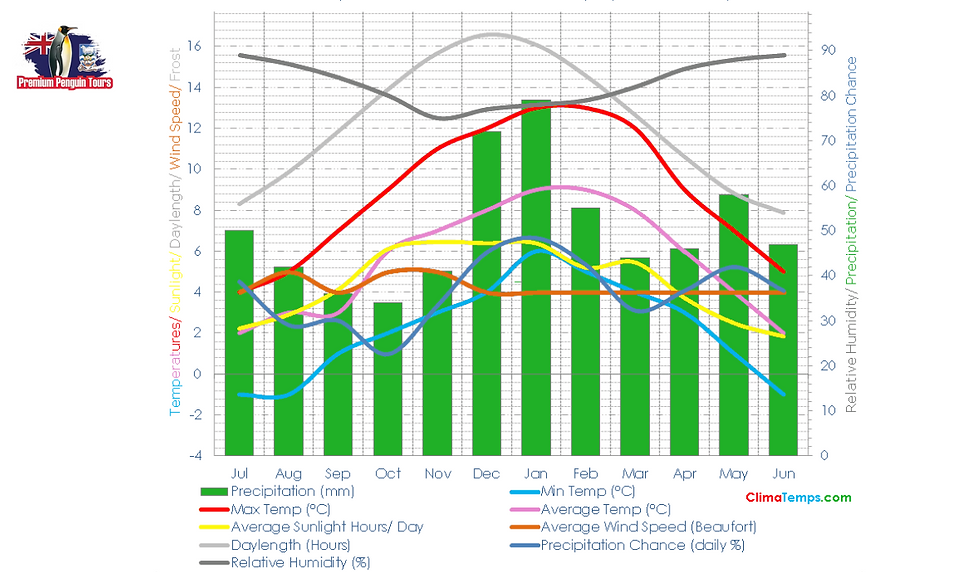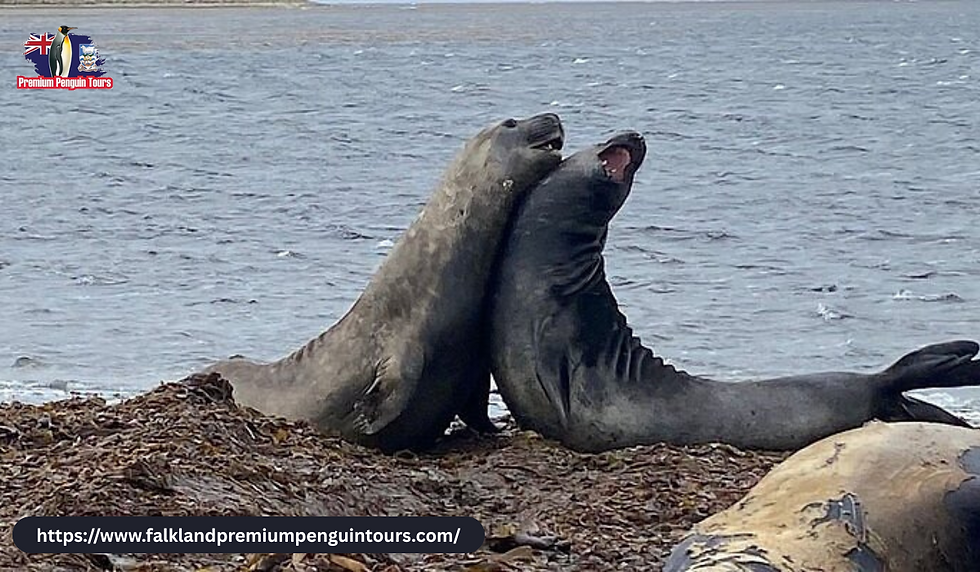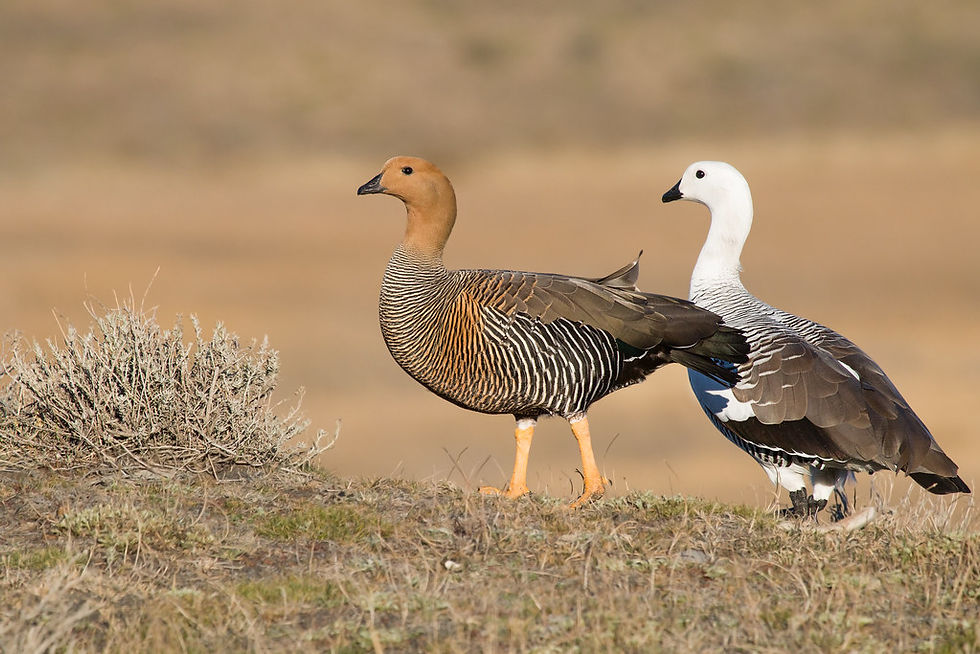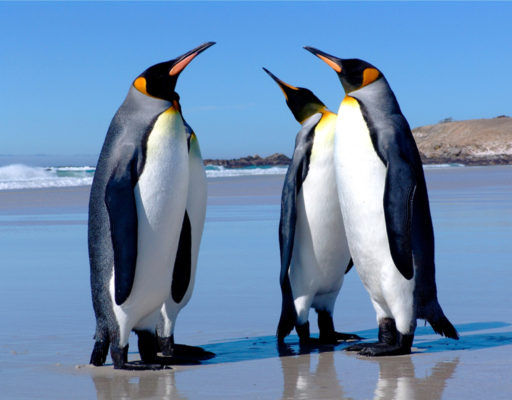Falkland Islands Weather by Month – Climate, Temperatures & Travel Tips
- Jimmy Anderson
- 37 minutes ago
- 4 min read
Falkland Islands Weather & Climate is shaped by its location in the South Atlantic, offering cool, fresh air year-round with minimal temperature extremes. Summers are mild, winters are chilly but not severely cold, and strong winds are common in all seasons.
Rainfall is moderate and evenly spread, while daylight hours vary dramatically between summer and winter. This unique maritime climate supports rich wildlife, from Gentoo penguins to albatrosses, making the islands a fascinating destination in every season.
Nestled in the South Atlantic, the Falkland Islands present a maritime subarctic climate characterized by cool, narrow annual temperature fluctuations and steady winds.
Falkland Islands Weather Year Round Snapshot
Summer (Dec–Feb): Average highs ~13 °C (55 °F), lows ~9 °C (48 °F).
Winter (Jun–Aug): Average highs ~4 °C (39 °F), lows ~2 °C (36 °F), occasionally hitting –5 °C.
Rainfall: Moderate and evenly distributed, especially in Stanley (~544 mm/year), though the western islands are drier.
Falkland Islands Weather by Month

Month | Avg High / Low (°C) | Precipitation & Humidity | Notes |
January | ~13 / 9 | Moderate rain | Warmest month, ideal for beach walks |
February | ~12 / 9 | Moderate rain, sunshine peaks | Lots of sunshine |
March | ~11 / 8 | Most wet days | Rain peaks in March |
April | ~10 / 7 | Steady rain | Cool and wet transition |
May | ~8 / 4 | Increasing wind | Mostly overcast |
June | ~4 / 2 | Snow possible, high humidity | True “winter” conditions |
July | ~4 / 2 | Cloudiest, continued cold | Overcast skies |
August | ~5 / 2 | Very windy | Strong westerlies |
September | ~7 / 3 | Drier, improving clarity | Rain dips, clearer skies |
October | ~9 / 4 | Low rainfall, cool | Spring chill, minimal rain |
November | ~11 / 6 | Moderate rain | Warming trend begins |
December | ~13 / 9 | Fair weather, more sun | Start of summer, longer daylight |
(All temperature ranges approximate using °C and referenced weather-data sources above.)
Data Source: (Weather Spark)
Natural Highlights & Travel Tips by Season
Summer (Dec–Feb): Best time to visit for beaches, Gentoo penguins, and mild weather.
Winter (Jun–Aug): Very chilly, high winds—excellent for dramatic photography, not sunbathing.
Shoulder Seasons (Mar–May & Sep–Nov): Less crowded, great for tours with moderate weather and fewer rainy days.
Tourist Tips:
Dress in layers with wind- and waterproofs year-round.
For wildlife spotting—especially the penguin colonies—summer offers the best daylight and warmth.
Guided tours offer expert access to remote colonies and scenic beaches.
Penguin Nesting Areas & Seasonal Behavior
The Falkland Islands are home to five penguin species — Gentoo, King, Magellanic, Rockhopper, and Macaroni — with Gentoo penguins being the most abundant and easily spotted during guided tours.
Nesting Locations:
Volunteer Point – Largest King penguin colony outside South Georgia.
Bertha’s Beach – Famous for Gentoo penguins near white-sand dunes.
Gypsy Cove – Close to Stanley, with Magellanic burrows in the tussac grass.
Sea Lion Island – Rockhoppers and Magellanic penguins in large numbers.
Behavior by Month:
October–November: Courtship and nest building begin.
November–December: Egg-laying period for most species.
December–January: Chicks hatch; high feeding activity.
February–March: Chicks fledge, colonies become more active along the shore.
April–September: Many species spend time at sea, with fewer land-based sightings.
💡 Tour Tip: Visiting in December or January gives you the magical experience of seeing fluffy chicks being fed at close range.
Falkland Islands Wildlife Weather Calendar Highlights
Month | Penguin Activity | Other Wildlife |
Jan | Chicks hatching/fed | Seal pups on beaches |
Feb | Chicks growing fast | Albatross fledging |
Mar | Fledging season | Dolphins in coastal waters |
Apr–Sep | Penguins mostly at sea | Sea lions, whales (winter migrations) |
Oct | Courtship displays | Elephant seal breeding |
Nov | Egg laying | Large seabird gatherings |
Dec | Chicks hatching | Seal pups, summer seabirds |

Month-Wise Tailored Packing List for the Falkland Islands Tour
Month | Clothing & Gear | Extras for Wildlife Tours |
January | Light thermal base, fleece, waterproof shell; waterproof hiking boots | Camera with zoom lens, sun hat, sunscreen (strong UV) |
February | Similar to Jan but add light windproof pants | Extra batteries (long daylight hours for photography) |
March | Layered clothing with warmer mid-layer; beanie & gloves | Binoculars for dolphin spotting |
April | Heavier fleece/down jacket, rainproof pants | Thermos for hot drinks on cooler tours |
May | Thick thermal base, insulated jacket, waterproof gloves | Tripod for low-light wildlife shots |
June | Multiple thermal layers, insulated gloves/hat, winter boots | Hand warmers for long outdoor viewing |
July | Full winter kit (thermal base, down jacket, heavy waterproof shell) | Waterproof camera cover for wet/windy days |
August | Same as July; focus on wind protection | Energy bars/snacks for extended tours |
September | Layered setup with lighter fleece as temps rise | Sunglasses (clearer skies, bright sun) |
October | Mix of spring layers + waterproofs | Light gloves for early-morning chill during courtship displays |
November | Layered clothing with mid-weight fleece; waterproof boots | Extra SD cards for seabird photography |
December | Summer layering with light thermal; rain jacket | Lightweight hiking pants, sun protection, seal pup photo gear |
Falkland Islands Weather by Month: FAQs
What is the best month to visit the Falkland Islands?
Early summer—December to February—offers the mildest temperatures and longest daylight, ideal for tours and wildlife viewing.
Is the Falkland weather good to live in for a long time?
The Falkland Islands’ weather is cool, windy, and changeable year-round, making it comfortable for some but challenging for long-term living.
Does the Falklands get hot?
No — even in summer, temperatures rarely exceed ~13 °C (55 °F).
How much is a house in the Falkland Islands?
Housing varies widely; specifics are scarce, but rent for a 2-bed house is around £1,100/month (Reddit).
What is the Falkland islands winter temperature?
Falkland Islands winter temperature typically ranges from 1°C to 5°C, with frequent cold winds and occasional frost.
Understanding Falkland Islands Weather & Climate helps you plan the perfect trip, whether for wildlife watching, photography, or exploring scenic beaches. With its changeable conditions, layering clothing is essential, and each season offers distinct experiences.
From sunny summer days with penguin chicks to dramatic winter seascapes, the islands’ climate is part of their charm. Whatever the month, the Falklands promise a memorable adventure for nature lovers and explorers alike.




Comments